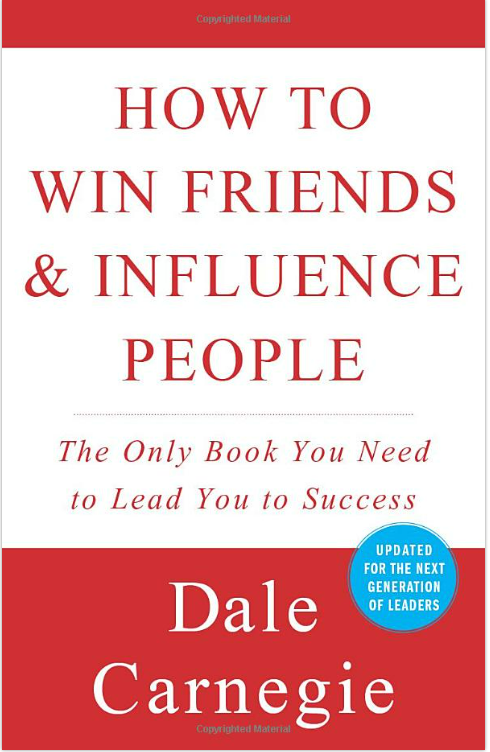We all know that exercise is good for us. It helps to keep our bodies (and our minds) healthy as we age. Unfortunately, for many of us, making a conscious decision to exercise is difficult. It’s easy to reason that, instead of exercising, we could be working and making money, or relaxing from all the work we’ve already done (and all that money we made.) There’s no doubt that we know exercise is good for us, but unless we’re one of those people who have Herculean willpower, we often choose to do something else instead.

Hey, I know it’s good for me. Doesn’t that count for something?
Without getting to far into physiology, there’s a strange phenomenon that occurs when we exercise. As we stress our muscle fibers, they become damaged. In response to this stress, our body realizes that the current state of our muscles is not strong enough to handle the demands that we’re placing on them through exercise, so it works to make them stronger. When we exercise, our current muscle fibers are torn apart, resulting in damage. Our body responds by fusing these torn muscle fibers back together. The process of fusing the damaged fibers back together results in the fibers becoming bigger (and stronger), so that they are better equipped to handle the strain of future exercise.
By subjecting our muscles to stress, they grow stronger and more resistant to stress.
Temper us in fire, and we grow stronger. When we suffer, we survive.
Cassandra Clare
Think back to the very first phone call you got from a client who was pissed-off about something. It might have been something you did, something you missed or something that had absolutely nothing to do with your job. For the vast majority of us, getting a call from a disgruntled client is a stressful situation. This external stressor, an angry client calling you on the phone, is often enough to set your teeth on edge.
External stress (an angry client yelling at you on the phone) can certainly lead to stress on the inside. Hell, many of us may be feeling a slight twinge in our stomachs right now, just sitting here remembering that exchange.
No one wants to receive that phone call. Having to deal with an angry client, especially your very first angry client, can ruin an otherwise pleasant day. However, just like a muscle that is never used will atrophy, growing weaker over time through lack of use, without some source of stress in our business, we will never get better at our craft.
Having to face that upset client and figuring out how to deal with the stress of that situation, can ultimately work in our favor. Just as stress makes your muscles stronger, dealing with problems in our business makes us better at our job. The trick is in knowing how to properly diffuse a contentious situation so that you’re able to find an acceptable resolution to your client’s perceived problem.
We should remember that there’s a proper time and place for laying out our evidence; for proving our case beyond a shadow of a doubt. Even though we believe that doing so would make our lives a whole lot easier, jumping up on your soapbox and shouting down your client’s argument during the initial moments of their first complaining phone call is not an effective way to run your business. Rarely will it produce good results, and quite often you will make things even worse than they were before you launched into your soapbox tirade.
Always remember, nowadays everyone has their own personal media distribution channel. And they’re not afraid to use it.

So, piss off your previous clients at your own risk.
I find that I often learn lessons in other areas of my life that are easily applicable to my business. And because I have a teen-aged daughter, it seems that I’m always learning new life lessons. Recently I picked my daughter up from school after a test. She was upset that the test didn’t go quite as well as she would have liked. After listening to what she did, I entered full “dad mode”, and proceeded to offer my advice, explaining her mistakes in judgement and laying out the steps that could be taken to avoid a similar situation in the future. Of course, my attempts at relaying fatherly wisdom fell on deaf ears, and I succeeded in doing nothing more that pissing her off.
Ironically enough, my misguided attempt at teaching ultimately led to a useful realization, albeit by me and not her. It’s taken me many years, and many thoughtless attempts at sharing my (perceived) wisdom with my daughter to realize this fact:
No one is receptive to constructive criticism when they’re stressed out from the event that you’re trying to criticize them about (no matter how constructive you’re trying to be while doing it.)
At best, your words of advice will fall on deaf ears. At worst, they’ll be taken as an insult to the person’s intelligence and can have unintended consequence. The subject of your attempted education will forget entirely about the mistake they’ve made, and instead shift their anger over to you and your ill-timed advice.
The same holds true for an angry client. When they call to complain, they’re not looking for you to start quoting your Standards of Practice, which clearly states that they’re wrong and you (of course) are totally right.
When a client calls with (what they perceive as) a problem, they’re not calling you because they are longing to be educated. They’re not looking for a lesson on exactly how your job is supposed to work. Much of the time, they’re calling so that they can vent about something they’re mad about, even though, deep down, they may know that you had nothing to do with their current problem.
Often, when people call to complain, they’re looking for consolation, not an education; they’re searching for support, not a speech; they crave validation, not a vigorous defense of your position. Most of the time, the best thing we, as business owners, can do is to simply listen to their rant and offer some empathetic consolation. Many times, they just want someone to listen to them and allow them to talk through their issues.
When people talk, listen completely. Most people never listen.
Ernest Hemingway
Obviously, not every client that calls is looking for a sympathetic ear, and sometimes a complaint call can quickly turn into a demoralizing situation, involving many other parties, including your insurance company. But even these situations can be affected by your reaction and demeanor during that initial call. Remember, you can catch more flies with honey than with vinegar.
Although none of us like dealing with problems in our business, they’re inevitable. Problems are simply one of the parts of running a small business. Sometimes things happen, unforeseen things, unfortunate things and occasionally, improbable things. Dealing with these issues is simply part of being in business.
How you deal with these issues can have a significant effect on how long you remain in business.
Going back to the muscle growth analogy, the stress of dealing with these problems is often the source of growth for us as business professionals. While we hate “being in the moment” and confronting these difficult situations, there is something to be gained from handling our business. Believe it or not, there are lessons to be learned and growth to be achieved.
One obvious thing that happens when we deal with problems is that we become better at dealing with problem clients. Remember the old axiom “Practice makes perfect”? Even though each client and each situation is unique in its own way, there are always some similarities that start to become obvious over time. We’re all human, so we’re going to share many traits between us, and if you do your job long enough, discernible patterns start to emerge when dealing with your clients.
You start to notice certain personality types that occur over and over and are able to start making decisions based on the predominant personality type that you’re dealing with that day. You start to notice that when you’re dealing with this type of personality, you need to slow your roll and be more deliberate in your explanations, while this other type of personality would get offended if you tried that with them. Again, every person and situation is different, but noticing common personality traits in your clients can help you to tailor the show for each different individual.
It’s nice to know that with practice comes experience, and experience breeds confidence. That’s not to say that the knot in your stomach ever goes away completely, but eventually it becomes less of a source of stress and more like an early warning system, alerting you that something important is about to happen so you need to be ready to handle the situation.
Problems are not stop signs, they are guidelines.
Robert Schuller
Experience dealing with problems isn’t the only benefit to these situations. Each of these incidents should serve as a valuable teaching moment for the businessperson inside your head. But just as my teenage daughter isn’t receptive to teaching moments when she’s in the throes of an emotionally charged situation, neither is our internal businessperson. Beating yourself up over a mistake or mishandled situation is hardly ever productive, even though we do it to ourselves all the time.

Once the anger and emotion has subsided, it’s important to spend a few minutes assessing what happened. Think about all the different things that led up to our stressful event. Was there something that happened, something we did or didn’t do, that could’ve lessened or possibly even eliminated the chances of this particular problem occurring? Was there something we said to our clients that made things better or worse? How would things have gone if we had tried something different?
The only real mistake is the one from which we learn nothing.
Henry Ford
I often tell students training to be inspectors at my American Inspection Academy school that when we learn lessons as home inspectors, three things typically accompany these lessons:
- The lesson cost us money (financial pain)
- The lesson hurts us (physical pain)
- The lesson embarrasses us (emotional pain)
Unfortunately, most of the lessons we learn as small business owners seem to combine these three things together for a trifecta of pain and suffering…
Since these lessons extract a toll on us each time we learn one, it’s incredibly important that we wring the maximum value possible from each of these painful situations. We should spend time analyzing what happened, what led up to the pain point, and try to figure out what changes we need to make to our business processes to help lessen the chances that we have to learn that painful lesson again.
Even in those situations where we handled everything well, we should seek to learn lessons that will help us grow into a more successful businessperson. By constantly assessing our methods and processes and making changes when something better comes along, we’re setting ourselves up for continued success and a bright future for our business.
We can’t become what we need to be by remaining what we are.
Oprah Winfrey
Would you like to get an email every Friday where we share the newest things we’ve discovered about home inspections? CLICK HERE to sign up.
Want to be an Influencer in Your Field? Share This Post!
Thanks, Joe


